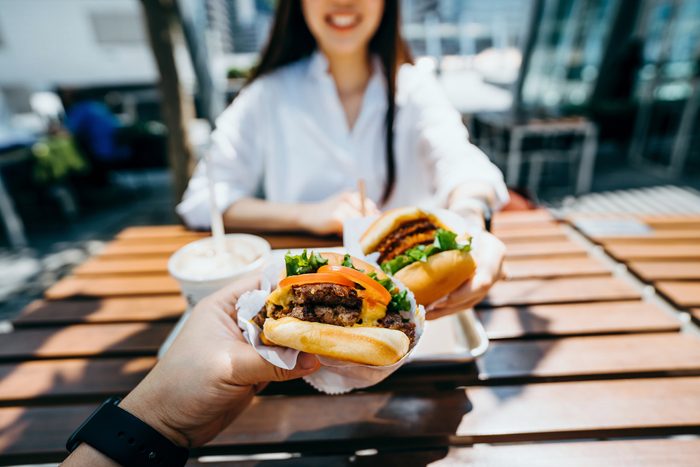
For the most part, the power of libido-boosting aphrodisiac foods is all in our heads. Still, while dining on oysters may or may not help get you in the mood, what we eat has an effect our sex lives—and there are certain foods you should avoid before having sex.
Can You Have Sex Every Day? Here’s What a Doctor Says
Foods you should never eat before sex
A healthy diet can promote a great sex life by supporting improved sexual function, sex drive, hormonal balance, energy levels, fertility and overall health, says Kaitlin Dresser, MS, RD, CSP, LD, CNSC, Registered Clinical Dietitian at Tufts Medical Center.
“A poor diet that is high in processed foods, added sugar and limited fiber may cause worse sexual outcomes by promoting obesity, high blood pressure or GI (gastrointestinal) upset,” Dresser adds.
You might not realize, though, that some surprising foods that are part of a healthy, balanced diet can also quickly kill the mood.
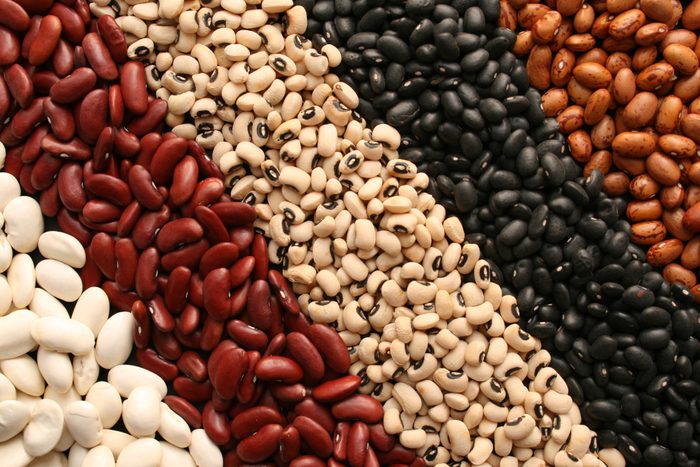
1. Legumes
Beans, lentils, chickpeas and other legumes are notorious for triggering digestive discomfort, Dresser says. That’s because they contain fiber and sugars that the human body can’t digest in its normal way. Instead, bacteria in our gut break it all down, causing fermentation—the process that makes beer or kombucha fizzy…and makes us feel bloated and gassy.
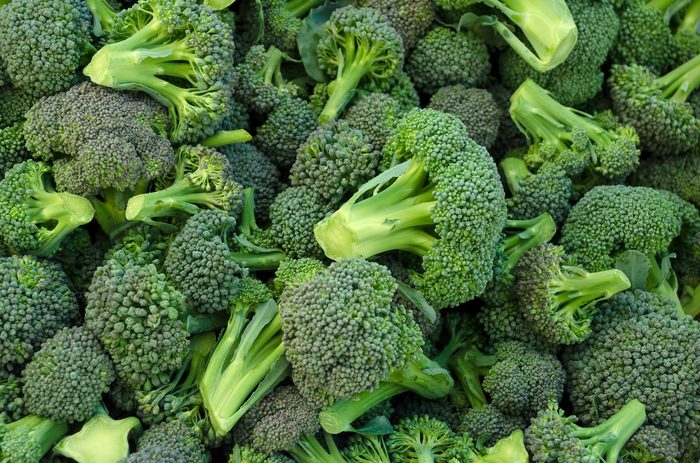
2. Cruciferous vegetables
Cruciferous vegetables like broccoli, kale, cabbage and bok choy are some of the healthiest, nutrient-dense foods you can eat. “[They’re] also more likely to cause gas,” explains Sabrina Oliver, a Senior Clinical Nutritionist specializing in digestive diseases at NewYork-Presbyterian Columbia University Irving Medical Center. Along with a hefty dose of fiber, these superfoods are rich in glucosinolates—natural compounds that contain sulfur and, when digested, can produce sulfur-smelling gas.
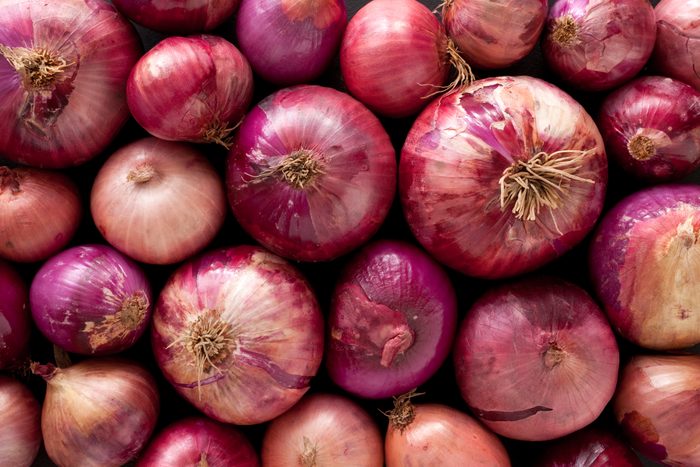
3. Garlic and onion
Garlic and onion both have sulfur-containing compounds, too. “When you chew them, the sulfur compounds release gas that mixes with bacteria in your mouth that also expels gas, leading to bad breath,” Oliver says.
Unfortunately, that smell can linger. “As digestion occurs, their byproducts are absorbed into the bloodstream and carried to the lungs to be exhaled via breath,” Dresser says.
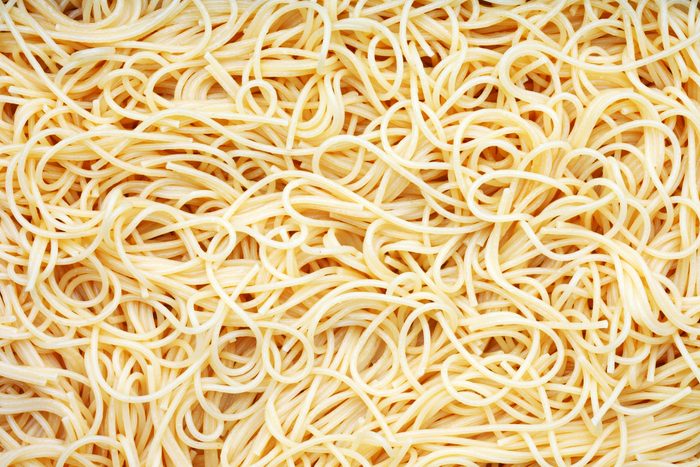
4. Heavy carbs
Carbohydrates found in foods like bread, pasta and potatoes contain simple sugars, which send immediate bursts of energy into your system. But according to the American Heart Association, this upswing doesn’t last for long—these simple carbs tend to send us crashing toward fatigue after the quick energy spike.
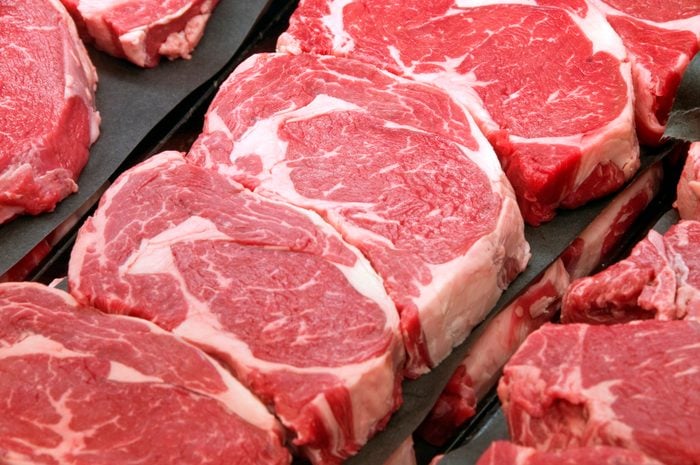
5. Red meat
You don’t have to avoid beef altogether on date night, but some types of red meat are more likely to send you to the couch than the bedroom. This is because fat is the most difficult nutrient for our body to digest. To help the process along, the body directs more of our energy to our gastrointestinal system—and too much fat can cause digestive distress. Look for leaner cuts like a sirloin tip steak, and avoid fattier options such as ribeye steak or beef burger patties.
These Are the 10 ‘Perfect Proteins,’ Says a Nutrition Expert
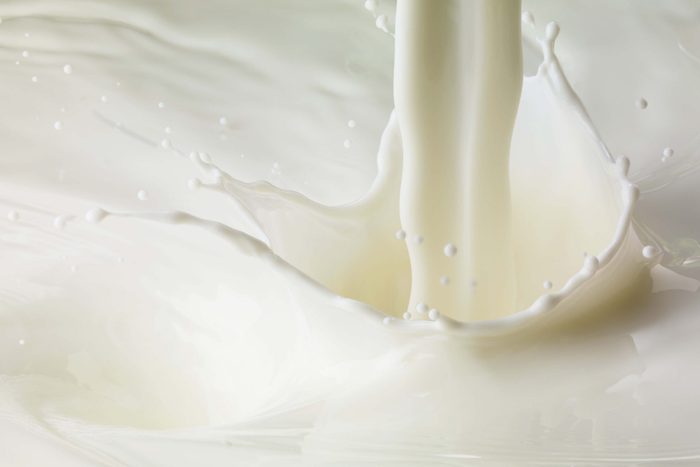
6. Dairy
Even if you’re not among the 36% of Americans who are lactose intolerant according to the National Institute of Diabetes and Digestive and Kidney Diseases, dairy can provoke IBS (irritable bowel syndrome) symptoms or trigger heartburn. In addition, dairy items also tend to have a high fat content—which is why you can feel sluggish as your body works to digest it.
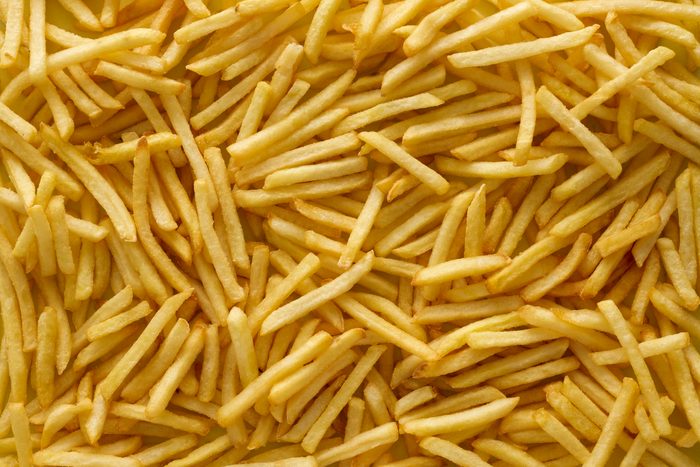
7. Fried food
“Fried and greasy foods can make people feel bloated or, in some cases, trigger diarrhea,” Oliver says. “It is best to avoid these types of food and order baked or grilled foods instead.” In addition, eating large portion sizes tends to make you feel bloated, she says, so make sure to chew foods well and stop when you’re full.
The 5 Healthiest Concession Stand Foods, According to a Certified Nutrition Coach
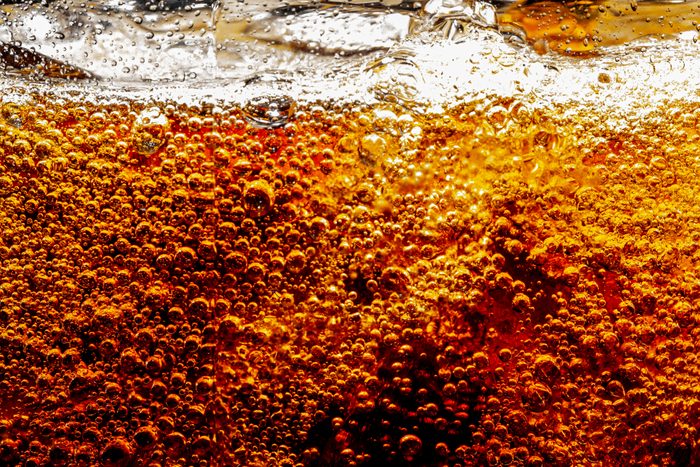
8. Certain drinks
Beverages that contain sugar alcohols—such as low-calorie or sugar-free drinks—can cause digestive issues because these sugar substitutes are not completely absorbed in our gut, Oliver explains. It’s a good idea to limit alcohol, too. Alcoholic beverages can lower testosterone levels, Dresser says, and this can reduce your sex drive and sexual function.
For more wellness updates, subscribe to The Healthy @Reader’s Digest newsletter and follow The Healthy on Facebook, Instagram, and Twitter. Keep reading:

